

| Company : Viva Cruises |
| Ship : PORTO MIRANTE |
| Journey Start : Wed 22 Jul 2026 |
| Journey End : Wed 29 Jul 2026 |
| Count Nights : 7 nights |
| Day | Date | Port | Arrival | Departure |
|---|---|---|---|---|
| 1 | 22.07 Wed | Porto / Portugal | ||
| 2 | 23.07 Thu | Leverinho / Portugal | 11:45 | 12:30 |
| 2 | 23.07 Thu | Leverinho / Portugal | 12:45 | 13:00 |
| 2 | 23.07 Thu | Peso da Régua / Portugal | 18:00 | |
| 2 | 23.07 Thu | Folgosa / Portugal | 20:30 | |
| 2 | 23.07 Thu | Folgosa / Portugal | 20:30 | |
| 2 | 23.07 Thu | Porto / Portugal | 11:00 | |
| 2 | 23.07 Thu | Porto / Portugal | 09:30 | |
| 3 | 24.07 Fri | Pocinho / Portugal | 13:45 | 14:15 |
| 3 | 24.07 Fri | Pocinho / Portugal | 14:45 | 15:15 |
| 3 | 24.07 Fri | Vega Terrón | 16:00 | |
| 3 | 24.07 Fri | Vega Terrón | 16:45 | |
| 3 | 24.07 Fri | Peso da Régua / Portugal | 07:45 | |
| 3 | 24.07 Fri | Folgosa / Portugal | 08:00 | |
| 4 | 25.07 Sat | Pocinho / Portugal | 16:00 | |
| 4 | 25.07 Sat | Pocinho / Portugal | 19:30 | |
| 4 | 25.07 Sat | Vega Terrón | 18:00 | |
| 4 | 25.07 Sat | Vega Terrón | 14:00 | |
| 5 | 26.07 Sun | Pinhao / Portugal | 12:00 | |
| 5 | 26.07 Sun | Pinhao / Portugal | 13:30 | |
| 5 | 26.07 Sun | Pocinho / Portugal | 07:00 | |
| 5 | 26.07 Sun | Pocinho / Portugal | 08:00 | |
| 6 | 27.07 Mon | Peso da Régua / Portugal | 12:30 | |
| 6 | 27.07 Mon | Pinhao / Portugal | 10:00 | |
| 7 | 28.07 Tue | Leverinho / Portugal | 13:15 | 13:30 |
| 7 | 28.07 Tue | Porto / Portugal | 16:00 | |
| 7 | 28.07 Tue | Peso da Régua / Portugal | 08:00 | |
| 8 | 29.07 Wed | Porto / Portugal |
VIVA All-Inclusive
Breakfast, Lunch, Dinner
Full board: breakfast buffet, lunch and dinner (gourmet menus served at the table) plus snacks. Free choice of table and flexible meal times.
Drinks all day
Hot and cold non-alcoholic beverages, plus a selection of alcoholic drinks. See bar menu for details.
High Tea
Once per trip: sweet and savory treats — scones, sandwiches, cupcakes, chocolates, macarons. Variety of teas included.
Welcome Drink
A warm welcome with a glass of champagne — to a wonderful stay on board.
RITUALS Beauty Products
Selected products for care and relaxation.
Minibar and Water Bottle
Daily replenished minibar and reusable bottle in the cabin.
Wi-Fi on board
Free and stable internet for comfortable use.
Tips included
All crew services are included in the price.
Payment
A 30% deposit is required at the time of booking.
Final payment must be made no later than 60 days before the cruise starts.
Cancellation
More than 120 days before departure – 10% of the total cost.
119–90 days – 20%.
89–30 days – 40%.
29–15 days – 60%.
14–1 day – 80%.
On the day of departure – 100%.
Rebooking
Changes to the booking are possible no later than 90 days before the cruise starts.
Fee – 50 EUR per person.
Passenger substitution
Allowed no later than 9 days before the cruise starts.
Fee – 50 EUR.
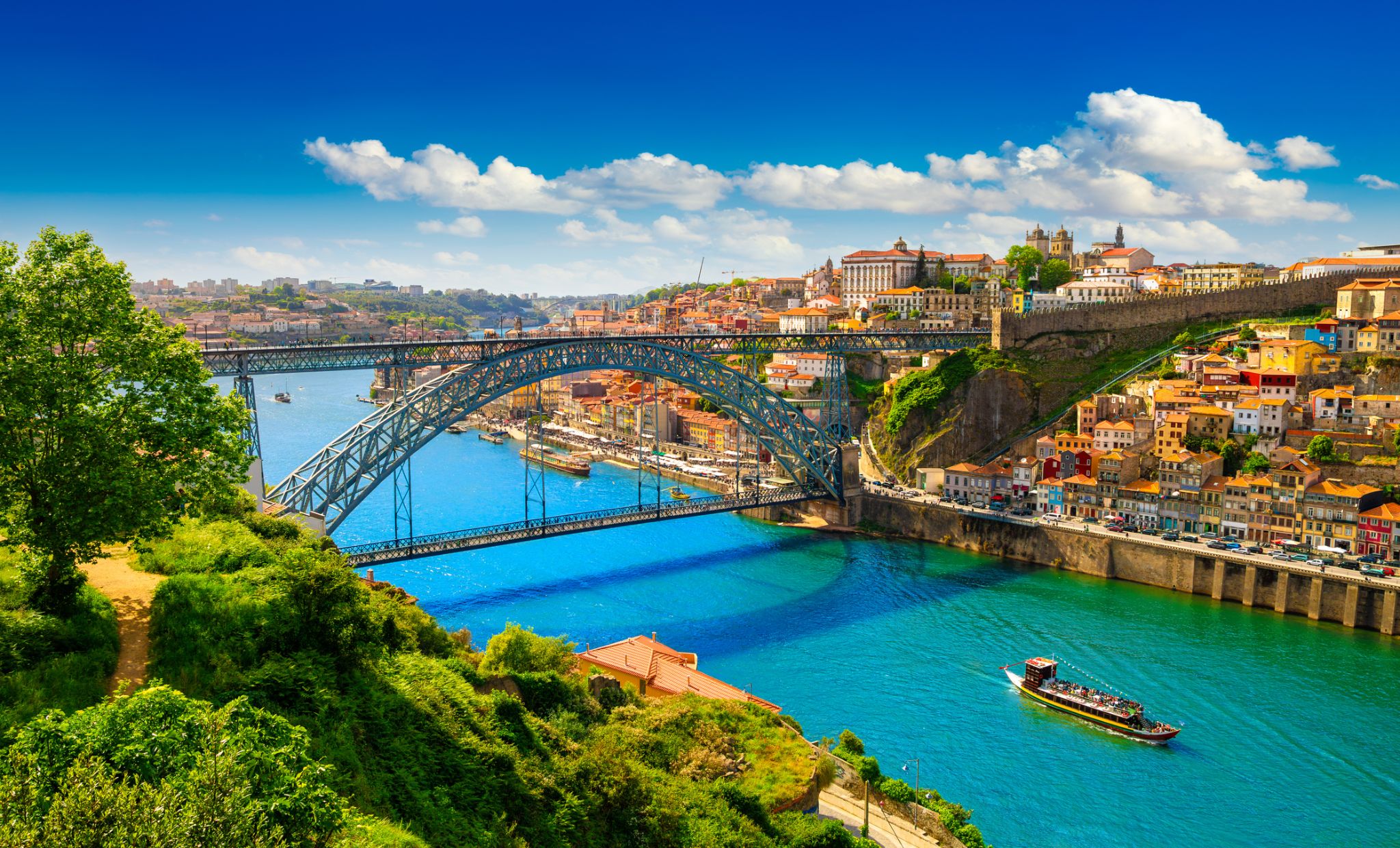
Порту является вторым по величине городом Португалии после Лиссабона и одним из крупных городских районов Пиренейского полуострова. Население самого города составляет 237 591 человек, а в столичном районе Порту, который выходит за административные пределы города, проживает 1,9 миллиона человек (2011 год) на площади 2 395 км2 (925 кв. Миль), что делает его вторым самый большой городской район в Португалии. Он признан глобальным городом гамма-уровня Исследовательской группой по глобализации и глобальным городам (GaWC), единственным португальским городом, кроме Лиссабона, который был признан глобальным городом.
Расположенный вдоль устья реки Дору на севере Португалии, Порту является одним из старейших европейских центров, и его историческое ядро было объявлено ЮНЕСКО объектом Всемирного наследия в 1996 году. Западная часть его городской территории простирается до береговой линии Атлантического океана. Его поселение датируется много веков, когда он был форпостом Римской империи. Его объединенное кельтско-латинское имя, Portus Cale, было названо происхождением названия «Португалия», основанного на транслитерации и устной эволюции от латыни. На португальском языке название города пишется с определенной статьей о Порту ; следовательно, его английское название произошло от неправильного толкования устного произношения и упоминается как Опорто в современной литературе и многими ораторами.
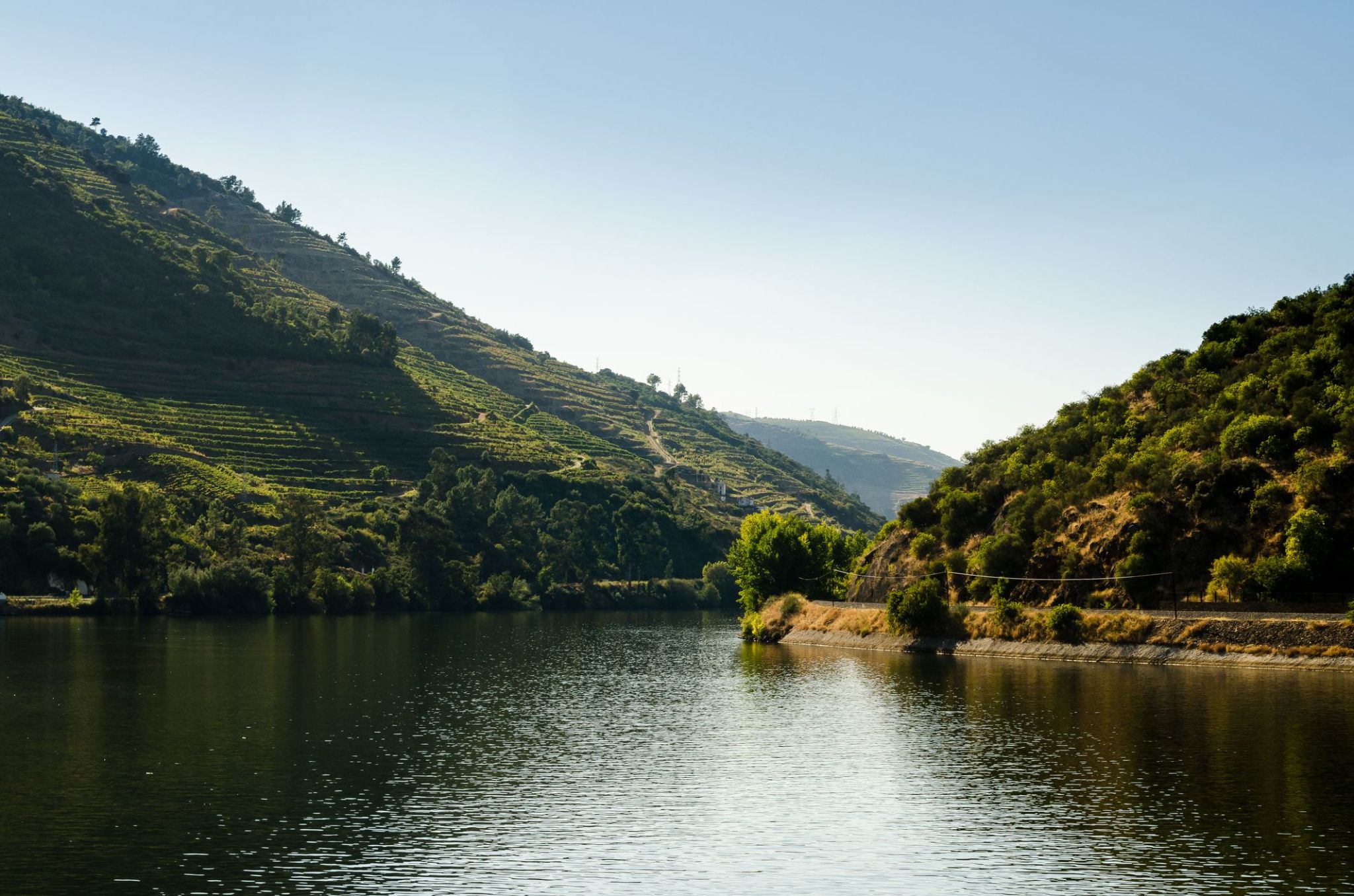
Tucked away among the vineyards of the Douro region, Leverinho offers travelers a path to true Portuguese idyll. This place is perfect for those seeking peace, nature, and leisurely strolls along emerald hills. Here, tranquility reigns, interrupted only by the rustle of leaves and the clink of glasses filled with local wine, which is produced just nearby.
Leverinho is ideal for those who appreciate the authentic atmosphere of rural Portugal—slow-paced, but rich in the joy of life. In nearby wineries, you can sample rare port wine varieties, while on local trails, you can enjoy views of the Douro River, whose waters reflect sunsets like a mirror. This corner is created for inspiration, recharging, and truly savoring the simple pleasures of life.

Tucked away among the vineyards of the Douro region, Leverinho offers travelers a path to true Portuguese idyll. This place is perfect for those seeking peace, nature, and leisurely strolls along emerald hills. Here, tranquility reigns, interrupted only by the rustle of leaves and the clink of glasses filled with local wine, which is produced just nearby.
Leverinho is ideal for those who appreciate the authentic atmosphere of rural Portugal—slow-paced, but rich in the joy of life. In nearby wineries, you can sample rare port wine varieties, while on local trails, you can enjoy views of the Douro River, whose waters reflect sunsets like a mirror. This corner is created for inspiration, recharging, and truly savoring the simple pleasures of life.
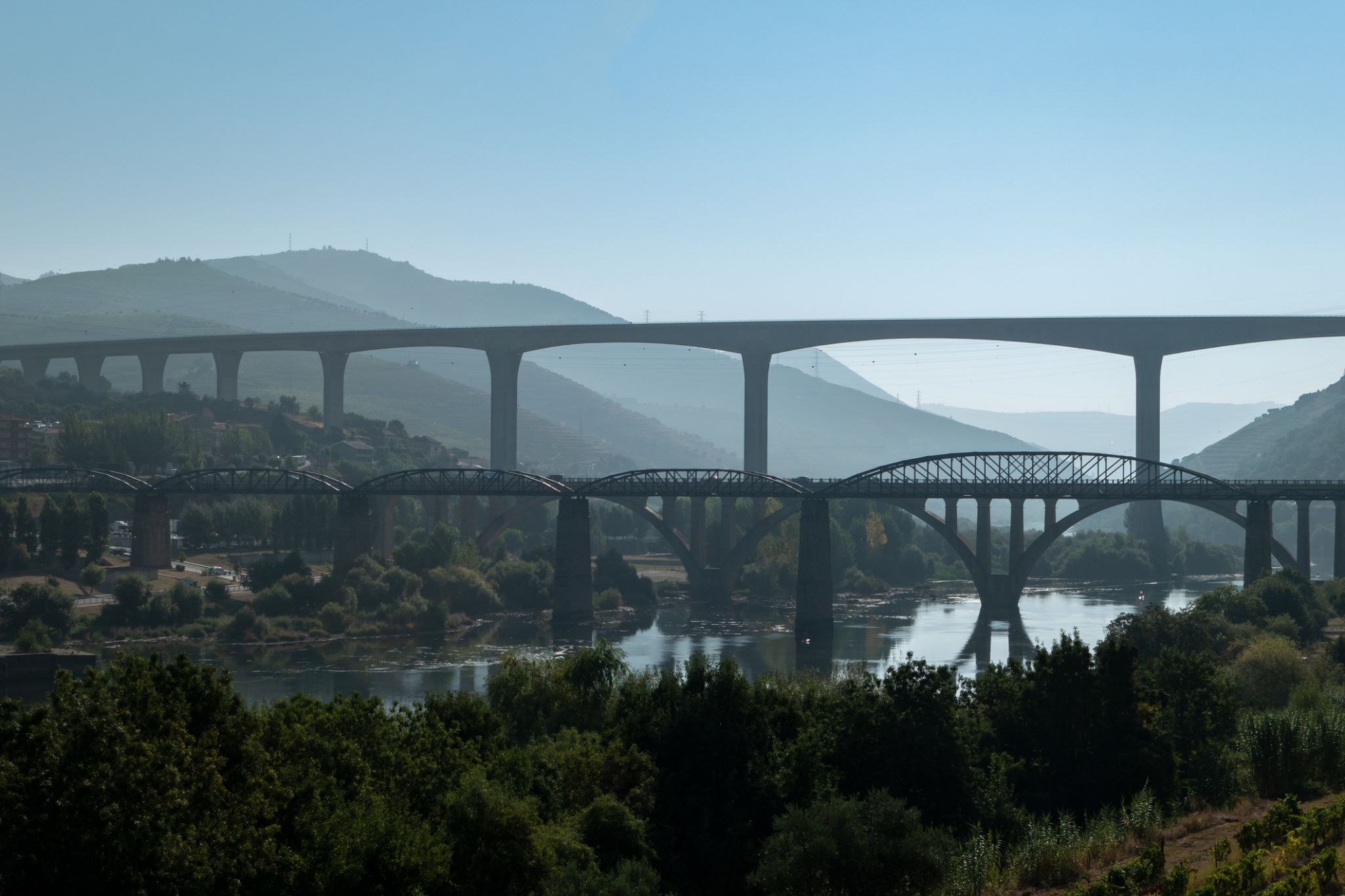
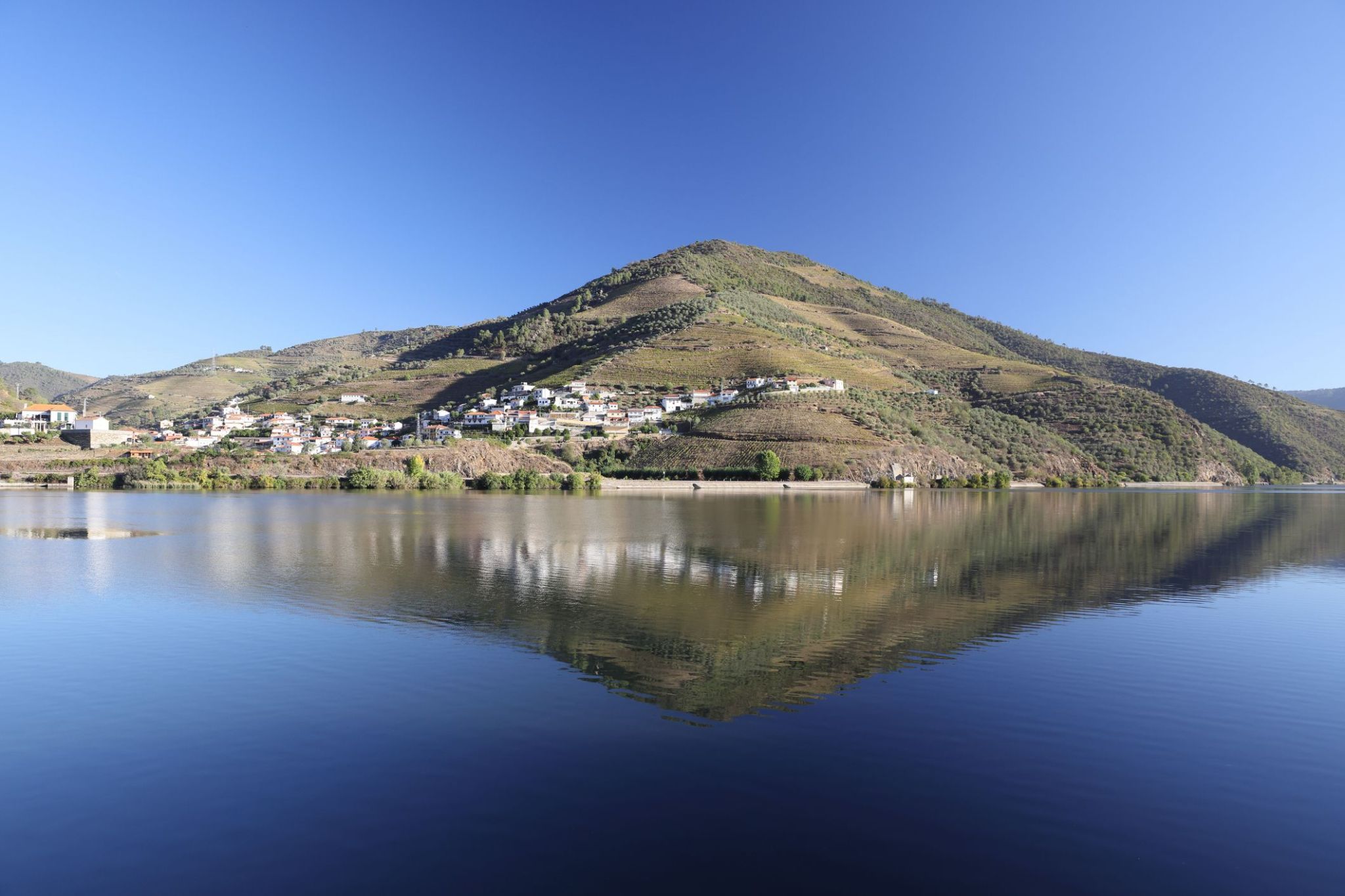
The humble charm of the Portuguese village of Folgosa is perfect for those seeking an authentic Douro Valley atmosphere. Situated on the scenic banks of the river with the same name, Folgosa offers a delightful mix of nature, winemaking traditions, and a slow-paced lifestyle. Visitors will discover narrow streets, vineyards cascading down to the water, and delicious local cuisine focused on regional wines and fresh fish.
Folgosa is especially popular among food lovers: it is home to the renowned DOC restaurant by chef Rui Paula, where guests can enjoy top-notch gastronomy with river views. Thanks to its proximity to major wineries, the village serves as an excellent starting point to explore the culture of port wine and walk through the terraced vineyards recognized by UNESCO as a World Heritage Site.

The humble charm of the Portuguese village of Folgosa is perfect for those seeking an authentic Douro Valley atmosphere. Situated on the scenic banks of the river with the same name, Folgosa offers a delightful mix of nature, winemaking traditions, and a slow-paced lifestyle. Visitors will discover narrow streets, vineyards cascading down to the water, and delicious local cuisine focused on regional wines and fresh fish.
Folgosa is especially popular among food lovers: it is home to the renowned DOC restaurant by chef Rui Paula, where guests can enjoy top-notch gastronomy with river views. Thanks to its proximity to major wineries, the village serves as an excellent starting point to explore the culture of port wine and walk through the terraced vineyards recognized by UNESCO as a World Heritage Site.

Порту является вторым по величине городом Португалии после Лиссабона и одним из крупных городских районов Пиренейского полуострова. Население самого города составляет 237 591 человек, а в столичном районе Порту, который выходит за административные пределы города, проживает 1,9 миллиона человек (2011 год) на площади 2 395 км2 (925 кв. Миль), что делает его вторым самый большой городской район в Португалии. Он признан глобальным городом гамма-уровня Исследовательской группой по глобализации и глобальным городам (GaWC), единственным португальским городом, кроме Лиссабона, который был признан глобальным городом.
Расположенный вдоль устья реки Дору на севере Португалии, Порту является одним из старейших европейских центров, и его историческое ядро было объявлено ЮНЕСКО объектом Всемирного наследия в 1996 году. Западная часть его городской территории простирается до береговой линии Атлантического океана. Его поселение датируется много веков, когда он был форпостом Римской империи. Его объединенное кельтско-латинское имя, Portus Cale, было названо происхождением названия «Португалия», основанного на транслитерации и устной эволюции от латыни. На португальском языке название города пишется с определенной статьей о Порту ; следовательно, его английское название произошло от неправильного толкования устного произношения и упоминается как Опорто в современной литературе и многими ораторами.

Порту является вторым по величине городом Португалии после Лиссабона и одним из крупных городских районов Пиренейского полуострова. Население самого города составляет 237 591 человек, а в столичном районе Порту, который выходит за административные пределы города, проживает 1,9 миллиона человек (2011 год) на площади 2 395 км2 (925 кв. Миль), что делает его вторым самый большой городской район в Португалии. Он признан глобальным городом гамма-уровня Исследовательской группой по глобализации и глобальным городам (GaWC), единственным португальским городом, кроме Лиссабона, который был признан глобальным городом.
Расположенный вдоль устья реки Дору на севере Португалии, Порту является одним из старейших европейских центров, и его историческое ядро было объявлено ЮНЕСКО объектом Всемирного наследия в 1996 году. Западная часть его городской территории простирается до береговой линии Атлантического океана. Его поселение датируется много веков, когда он был форпостом Римской империи. Его объединенное кельтско-латинское имя, Portus Cale, было названо происхождением названия «Португалия», основанного на транслитерации и устной эволюции от латыни. На португальском языке название города пишется с определенной статьей о Порту ; следовательно, его английское название произошло от неправильного толкования устного произношения и упоминается как Опорто в современной литературе и многими ораторами.
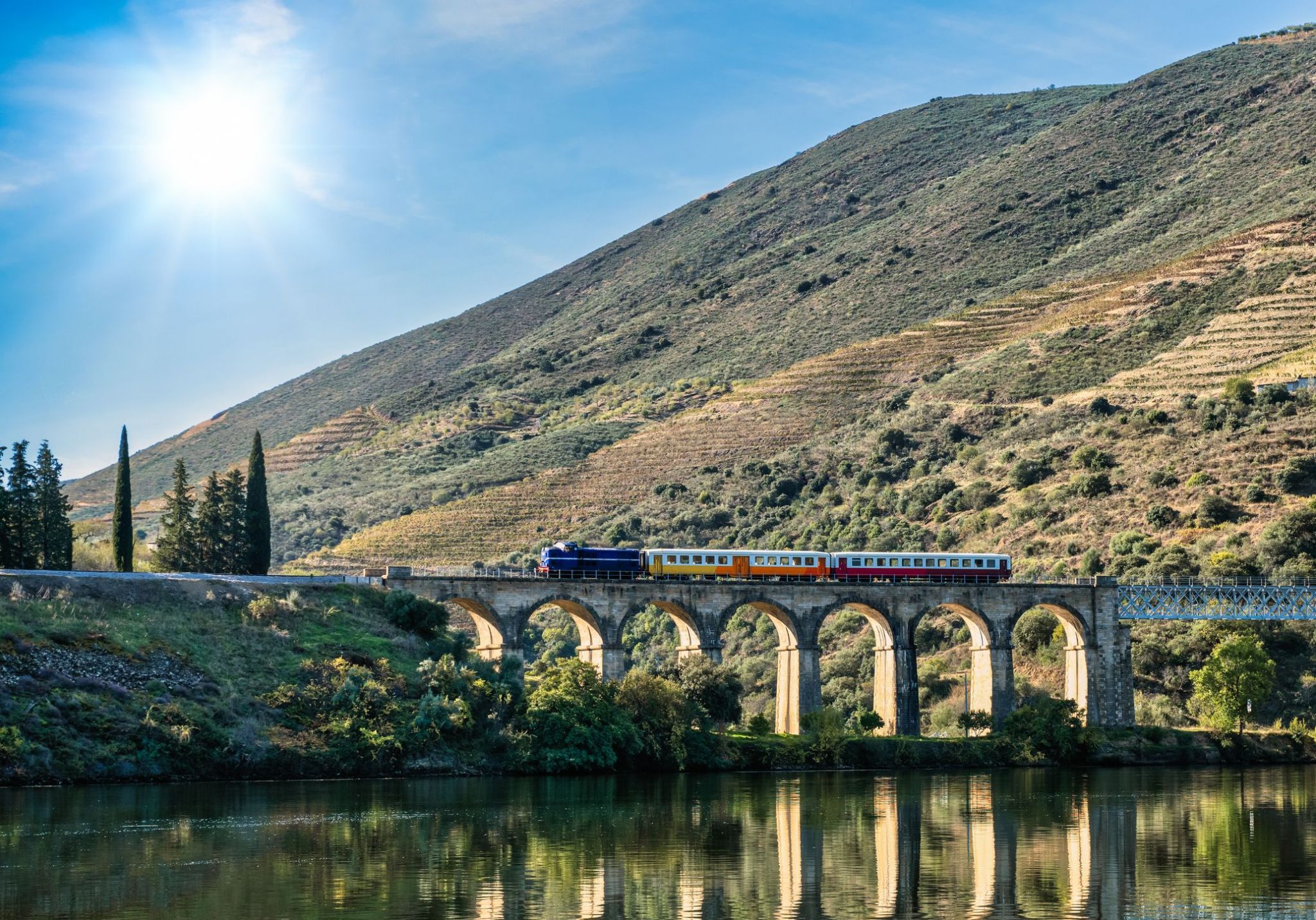
Among the picturesque landscapes of the Douro Valley lies a place seemingly made for unhurried discoveries. Pocinho, a small village in northern Portugal, enchants travelers with its peaceful atmosphere, hillside vineyards, and the chance to experience life at the rhythm of old Portuguese traditions.
It is also one of the final stops on the historic Douro railway line, offering a scenic journey along the river with breathtaking views. In Pocinho, take time to enjoy local cuisine, walk along the riverbank, or explore the region’s wineries where the famous port wine is made. It’s an ideal destination for those seeking authentic Portugal away from the crowds.

Among the picturesque landscapes of the Douro Valley lies a place seemingly made for unhurried discoveries. Pocinho, a small village in northern Portugal, enchants travelers with its peaceful atmosphere, hillside vineyards, and the chance to experience life at the rhythm of old Portuguese traditions.
It is also one of the final stops on the historic Douro railway line, offering a scenic journey along the river with breathtaking views. In Pocinho, take time to enjoy local cuisine, walk along the riverbank, or explore the region’s wineries where the famous port wine is made. It’s an ideal destination for those seeking authentic Portugal away from the crowds.
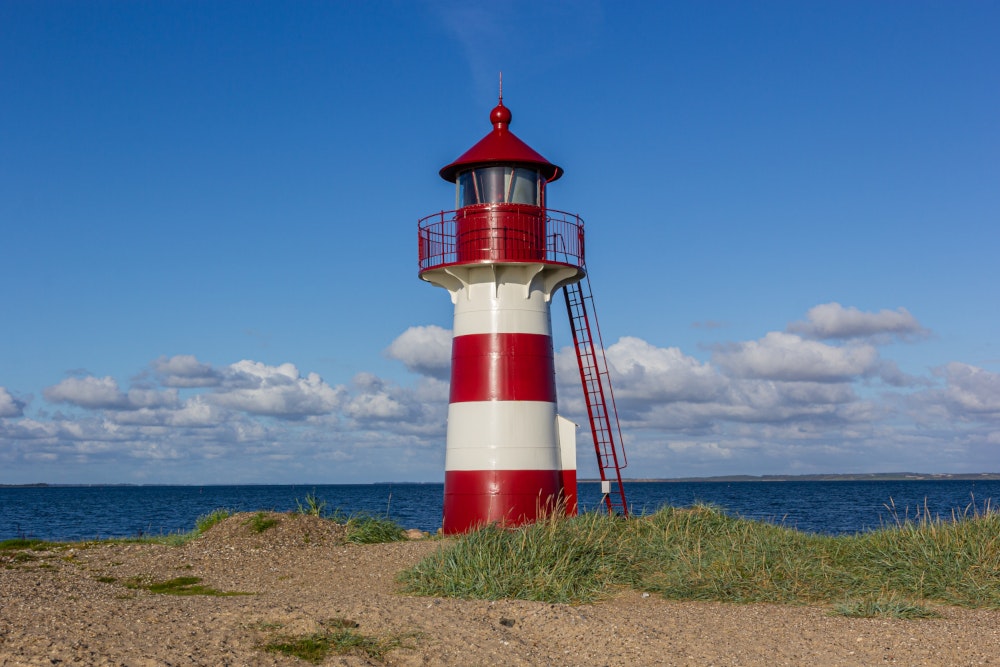



The humble charm of the Portuguese village of Folgosa is perfect for those seeking an authentic Douro Valley atmosphere. Situated on the scenic banks of the river with the same name, Folgosa offers a delightful mix of nature, winemaking traditions, and a slow-paced lifestyle. Visitors will discover narrow streets, vineyards cascading down to the water, and delicious local cuisine focused on regional wines and fresh fish.
Folgosa is especially popular among food lovers: it is home to the renowned DOC restaurant by chef Rui Paula, where guests can enjoy top-notch gastronomy with river views. Thanks to its proximity to major wineries, the village serves as an excellent starting point to explore the culture of port wine and walk through the terraced vineyards recognized by UNESCO as a World Heritage Site.

Among the picturesque landscapes of the Douro Valley lies a place seemingly made for unhurried discoveries. Pocinho, a small village in northern Portugal, enchants travelers with its peaceful atmosphere, hillside vineyards, and the chance to experience life at the rhythm of old Portuguese traditions.
It is also one of the final stops on the historic Douro railway line, offering a scenic journey along the river with breathtaking views. In Pocinho, take time to enjoy local cuisine, walk along the riverbank, or explore the region’s wineries where the famous port wine is made. It’s an ideal destination for those seeking authentic Portugal away from the crowds.

Among the picturesque landscapes of the Douro Valley lies a place seemingly made for unhurried discoveries. Pocinho, a small village in northern Portugal, enchants travelers with its peaceful atmosphere, hillside vineyards, and the chance to experience life at the rhythm of old Portuguese traditions.
It is also one of the final stops on the historic Douro railway line, offering a scenic journey along the river with breathtaking views. In Pocinho, take time to enjoy local cuisine, walk along the riverbank, or explore the region’s wineries where the famous port wine is made. It’s an ideal destination for those seeking authentic Portugal away from the crowds.


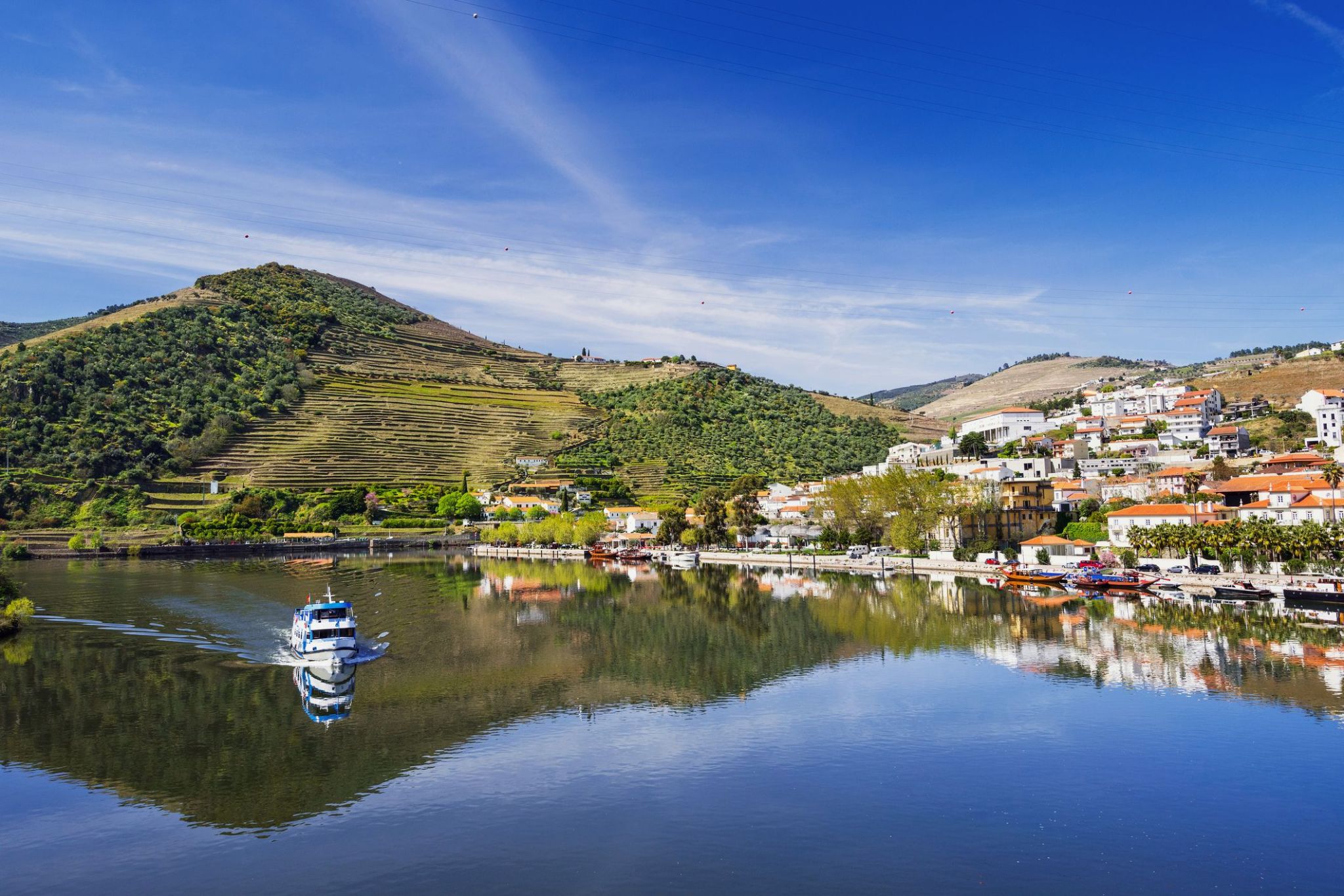
Quietly nestled in the heart of the Douro Valley, Pinhao (Pinhão) enchants with its vineyards stretching across terraced hillsides above the winding river. This small Portuguese town, surrounded by breathtaking landscapes, is one of the main winemaking centers of the region and is part of a UNESCO World Heritage site. Many river cruises begin here, and a ride on the scenic Linha do Douro railway is a real treat for lovers of nature and history.
Pinhao is known for its cozy and authentic atmosphere: the old train station decorated with azulejos — traditional Portuguese tiles — tells stories of wine harvests and river life. Visitors can stay at local wine estates (quintas), taste port wine straight from the source, and enjoy sunsets reflected in the river's waters. It’s the perfect place for those seeking a relaxed retreat surrounded by unique cultural and natural richness.

Quietly nestled in the heart of the Douro Valley, Pinhao (Pinhão) enchants with its vineyards stretching across terraced hillsides above the winding river. This small Portuguese town, surrounded by breathtaking landscapes, is one of the main winemaking centers of the region and is part of a UNESCO World Heritage site. Many river cruises begin here, and a ride on the scenic Linha do Douro railway is a real treat for lovers of nature and history.
Pinhao is known for its cozy and authentic atmosphere: the old train station decorated with azulejos — traditional Portuguese tiles — tells stories of wine harvests and river life. Visitors can stay at local wine estates (quintas), taste port wine straight from the source, and enjoy sunsets reflected in the river's waters. It’s the perfect place for those seeking a relaxed retreat surrounded by unique cultural and natural richness.

Among the picturesque landscapes of the Douro Valley lies a place seemingly made for unhurried discoveries. Pocinho, a small village in northern Portugal, enchants travelers with its peaceful atmosphere, hillside vineyards, and the chance to experience life at the rhythm of old Portuguese traditions.
It is also one of the final stops on the historic Douro railway line, offering a scenic journey along the river with breathtaking views. In Pocinho, take time to enjoy local cuisine, walk along the riverbank, or explore the region’s wineries where the famous port wine is made. It’s an ideal destination for those seeking authentic Portugal away from the crowds.

Among the picturesque landscapes of the Douro Valley lies a place seemingly made for unhurried discoveries. Pocinho, a small village in northern Portugal, enchants travelers with its peaceful atmosphere, hillside vineyards, and the chance to experience life at the rhythm of old Portuguese traditions.
It is also one of the final stops on the historic Douro railway line, offering a scenic journey along the river with breathtaking views. In Pocinho, take time to enjoy local cuisine, walk along the riverbank, or explore the region’s wineries where the famous port wine is made. It’s an ideal destination for those seeking authentic Portugal away from the crowds.


Quietly nestled in the heart of the Douro Valley, Pinhao (Pinhão) enchants with its vineyards stretching across terraced hillsides above the winding river. This small Portuguese town, surrounded by breathtaking landscapes, is one of the main winemaking centers of the region and is part of a UNESCO World Heritage site. Many river cruises begin here, and a ride on the scenic Linha do Douro railway is a real treat for lovers of nature and history.
Pinhao is known for its cozy and authentic atmosphere: the old train station decorated with azulejos — traditional Portuguese tiles — tells stories of wine harvests and river life. Visitors can stay at local wine estates (quintas), taste port wine straight from the source, and enjoy sunsets reflected in the river's waters. It’s the perfect place for those seeking a relaxed retreat surrounded by unique cultural and natural richness.

Tucked away among the vineyards of the Douro region, Leverinho offers travelers a path to true Portuguese idyll. This place is perfect for those seeking peace, nature, and leisurely strolls along emerald hills. Here, tranquility reigns, interrupted only by the rustle of leaves and the clink of glasses filled with local wine, which is produced just nearby.
Leverinho is ideal for those who appreciate the authentic atmosphere of rural Portugal—slow-paced, but rich in the joy of life. In nearby wineries, you can sample rare port wine varieties, while on local trails, you can enjoy views of the Douro River, whose waters reflect sunsets like a mirror. This corner is created for inspiration, recharging, and truly savoring the simple pleasures of life.

Порту является вторым по величине городом Португалии после Лиссабона и одним из крупных городских районов Пиренейского полуострова. Население самого города составляет 237 591 человек, а в столичном районе Порту, который выходит за административные пределы города, проживает 1,9 миллиона человек (2011 год) на площади 2 395 км2 (925 кв. Миль), что делает его вторым самый большой городской район в Португалии. Он признан глобальным городом гамма-уровня Исследовательской группой по глобализации и глобальным городам (GaWC), единственным португальским городом, кроме Лиссабона, который был признан глобальным городом.
Расположенный вдоль устья реки Дору на севере Португалии, Порту является одним из старейших европейских центров, и его историческое ядро было объявлено ЮНЕСКО объектом Всемирного наследия в 1996 году. Западная часть его городской территории простирается до береговой линии Атлантического океана. Его поселение датируется много веков, когда он был форпостом Римской империи. Его объединенное кельтско-латинское имя, Portus Cale, было названо происхождением названия «Португалия», основанного на транслитерации и устной эволюции от латыни. На португальском языке название города пишется с определенной статьей о Порту ; следовательно, его английское название произошло от неправильного толкования устного произношения и упоминается как Опорто в современной литературе и многими ораторами.


Порту является вторым по величине городом Португалии после Лиссабона и одним из крупных городских районов Пиренейского полуострова. Население самого города составляет 237 591 человек, а в столичном районе Порту, который выходит за административные пределы города, проживает 1,9 миллиона человек (2011 год) на площади 2 395 км2 (925 кв. Миль), что делает его вторым самый большой городской район в Португалии. Он признан глобальным городом гамма-уровня Исследовательской группой по глобализации и глобальным городам (GaWC), единственным португальским городом, кроме Лиссабона, который был признан глобальным городом.
Расположенный вдоль устья реки Дору на севере Португалии, Порту является одним из старейших европейских центров, и его историческое ядро было объявлено ЮНЕСКО объектом Всемирного наследия в 1996 году. Западная часть его городской территории простирается до береговой линии Атлантического океана. Его поселение датируется много веков, когда он был форпостом Римской империи. Его объединенное кельтско-латинское имя, Portus Cale, было названо происхождением названия «Португалия», основанного на транслитерации и устной эволюции от латыни. На португальском языке название города пишется с определенной статьей о Порту ; следовательно, его английское название произошло от неправильного толкования устного произношения и упоминается как Опорто в современной литературе и многими ораторами.